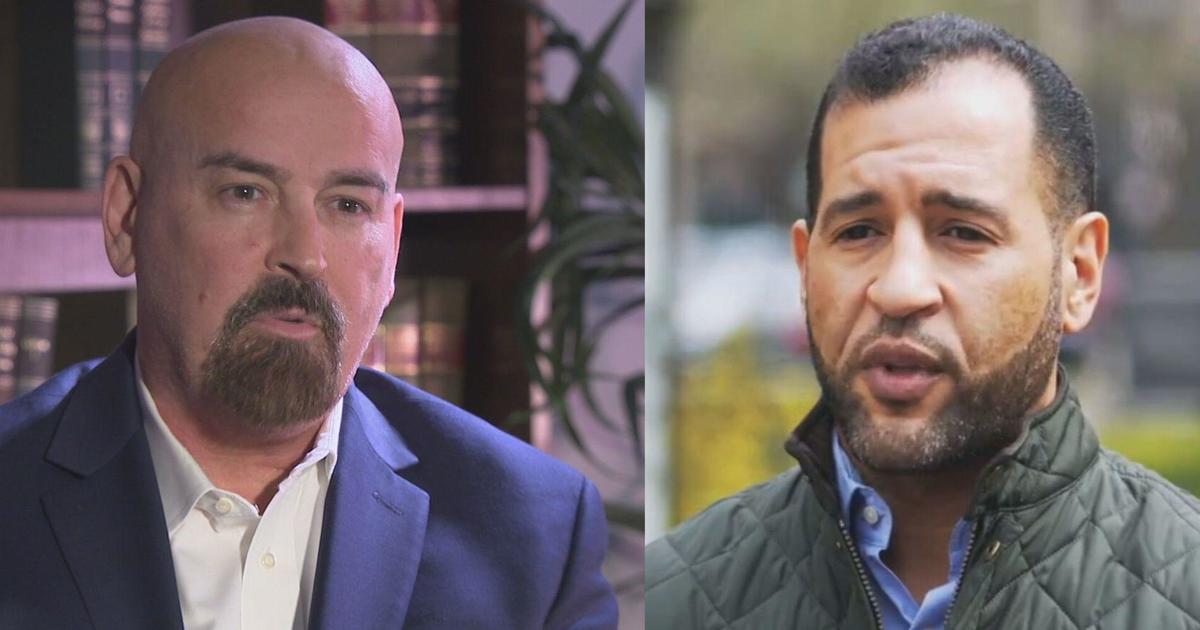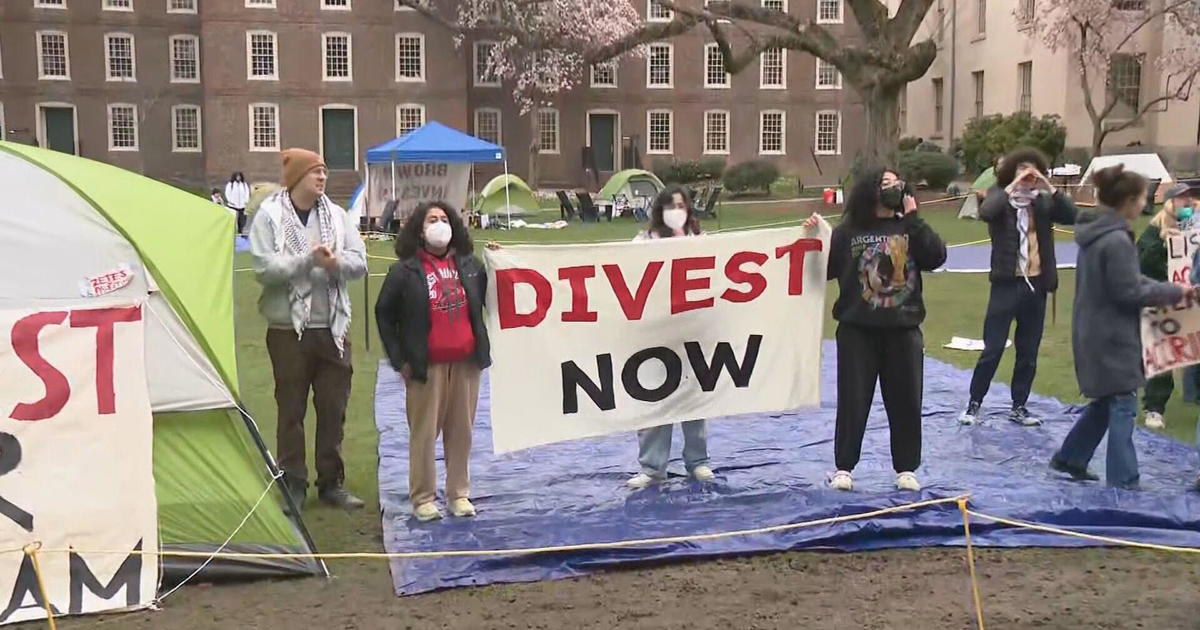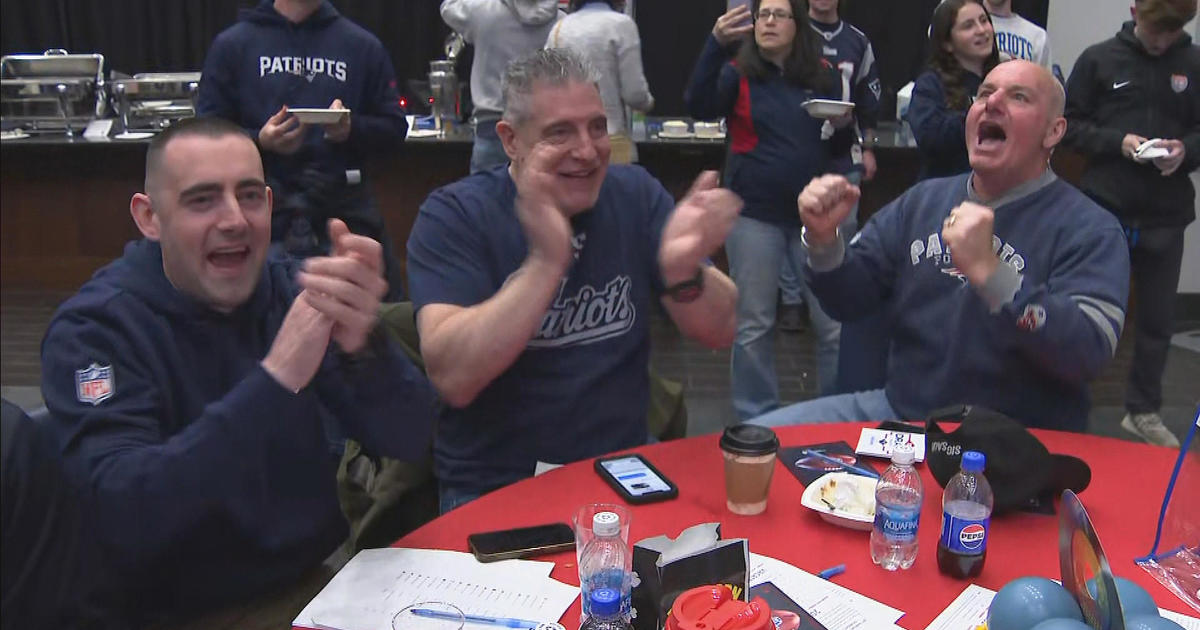Brown, Warren Want To Block Third-Party-Funded Attack Ads
BOSTON (AP) — Republican U.S. Sen. Scott Brown and Democrat Elizabeth Warren say they want to block third-party groups from launching political attacks ads in the race for the Senate seat now held by Brown.
What's less clear is just what power Brown or Warren have over the independent groups behind the ads.
By their nature, the political action committees and outside groups that pay for the ads must work independently of the candidates and their campaigns. Federal election law explicitly bans candidates from coordinating with the committees on advertising.
Brown was the first to call on all third-party groups to eliminate the ads, which he called "false and misleading."
But Brown has also suggested there's little more he can do than issue a public plea.
Two of the ads in question were sponsored by Crossroads GPS, an affiliate of American Crossroads, a group with ties to GOP political operative Karl Rove. Both went after Warren in support of Brown's re-election bid.
One ad used spliced images of Warren with rowdy Occupy Wall Street protesters to claim that she "sides with extreme left" protesters who "attack police, do drugs and trash public parks." A second Crossroads ad then painted Warren as being too cozy with Wall Street.
When asked during a recent interview with The Associated Press if he had tried to contact Crossroads GPS directly to ask them to pull their ads, Brown said he couldn't.
"I can't get involved because it's illegal," Brown said. "They should stay out. People deserve better in Massachusetts than the false and misleading" ads the group is airing on both candidates.
A call to a spokesman for Crossroads GPS wasn't immediately returned.
Warren had initially defended the rights of some political action committees and other independent groups to run ads while decrying what she described as unfair attack ads.
The League of Conservation Voters and the League of Women Voters have already spent nearly $3 million on separate ad campaigns targeting Brown in support of Warren's campaign.
The League of Women Voters' ad rapped Brown for voting with other Senate Republicans to ban the Environmental Protection Agency from controlling gases blamed for global warming. They urged Brown to "protect the people and not the polluters."
Another spot by the League of Conservation Voters slammed Brown for siding with "big oil."
On Friday, in response to a letter from Brown asking her to join him in denouncing the ads from outside groups, Warren suggested the two forge an "enforceable agreement" to block political attack ads by independent groups.
Warren said the agreement should cover TV, radio and online advertisements from outside groups and third parties and include consequences for the campaign that fails to honor this agreement.
"We have the opportunity to set an example for the rest of the country. Let's do it," Warren wrote.
Warren's letter didn't say how the campaigns could block ads by independent groups.
Last week, however, Warren suggested that Brown hadn't done enough to try to block the Crossroads GPS ads.
"When Scott Brown has a wingman like Karl Rove who's coming in, it's real hard for me to believe that Scott Brown is trying to keep them from doing this," Warren said in response to a reporter's question. "If Scott Brown doesn't have some influence over them, who does?"
Federal Election Commission regulations explicitly bar candidates for federal office from working with third-party groups that are sponsoring ads.
Specifically, the regulations ban candidates from being "materially involved in decisions regarding" the content of an ad, its intended audience, the frequency and timing of an ad, and its specific media outlet.
The regulations also prohibit candidates from providing "material or information to assist another person in the creation, production, or distribution of any communication."
Although the regulations don't appear to prohibit a candidate from calling a third-party group to ask them to pull their ads, political watchers say at best it's a fuzzy area of the law.
"I'm inclined to say that he probably could call and say, 'Pull these ads,' but it's a gray area," said Pam Wilmot, president of Common Cause Massachusetts, a government watchdog group. "I think the answer is for the FEC to provide better and clearer guidance to candidates."
Michael Toner, a former Federal Election Commission chairman and lawyer who advises candidates in election law matters, said he would urge candidates against calling up a third-party group directly, even if it's just to ask them to pull their ads.
"I certainly have advised that if you're a candidate, you should strictly avoid any kind of nonpublic discussion with outside groups," said Toner, who recently served as counsel to Republican Minnesota Gov. Tim Pawlenty's now-abandoned presidential campaign.
"When you get into those kinds of discussions, you run into trouble," he said.
The Senate campaign is expected to be one of the costliest in state history.
Warren has reported raising $5.7 million during the final three months of 2011, eclipsing Brown's $3.2 million for the same period. Brown still enjoys an overall money advantage with $12.8 million in cash on hand, compared to the more than $6 million Warren has in her account.
Brown is officially launching his re-election campaign this week in Worcester.
Warren, a consumer advocate and Harvard law professor, still must win the Democratic primary in September.
She is being challenged by other Democratic candidates including Marisa DeFranco, an immigration lawyer from Middleton, and James King, a lawyer from Dover.
Copyright 2012 The Associated Press.



